Being traditional pastoralists
with a nomadic bent, the Maasai have used the sprawling grasslands and forested
slopes of the Serengeti National Park, Tsavo National Park and Mkomazi Game
Reserve as a grazing ground for their cattle, which provide them with the milk,
meat and blood they need to survive.
But lately, these rich lands have
also lured many outsiders, including large-scale hunting companies, threatening the
traditional Maasai way of living.
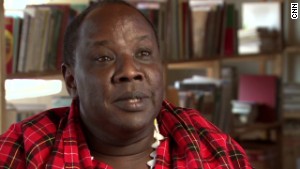 Ancient Maasai culture in the
modern world
Ancient Maasai culture in the
modern world 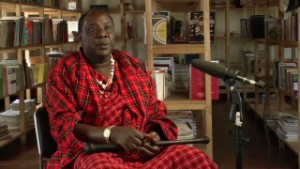 Saving the Maasai
lands
Saving the Maasai
lands 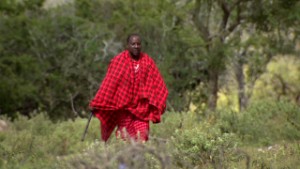 Empowering Maasai's
women
Empowering Maasai's
women
"The riches and the wealth that
come out of it is actually flying away from Maasai land by the rich
and powerful
people," says Martin Saning'o Kariongi, with a wry smile. "Maasai land is a very
rich country, or rich region, but the owners, the inhabitants, are amongst the
poorest in the world. It's very sad but that's the reality."
Aware of the precarious position
his tribe finds itself in, Kariongi, a well-respected Maasai community leader,
has made it his life's work to save his people and their way of life, whilst
helping them adapt to a changing world.
As one of the few of his
generation to make it through high school and further education, Kariongi
started his work as a social development activist in the early 1990s, after
spending time studying in Europe. Upon his return to Tanzania, he organized a
legal campaign opposing a government-forced eviction of Maasai people from the
country's Simanjiro plains.
The High Court of Tanzania ruled
in favor of the Maasai and soon Kariongi was working to improve the economic
conditions of his people too.
"Around 2000 we started to think
that despite the whole struggle for land rights and human rights of the Maasai
people, poverty is growing and so many of our young people are rushing into
cities," recalls Kariongi. "That's when we actually said we have to find a way
to create opportunities for community economic empowerment."
Generations come and go, and each generation puts its own firewood on the
fire and the fire is the culture.
Kariongi's first idea for
self-sustainability was to turn the resources available to the Maasai -- their
animals and abundant milk -- into an opportunity to create wealth for his
people.
Working together with a SHGW, a
Dutch NGO dedicated to promoting sustainable development in rural regions of the
developing world, they launched a company and established five small milk
processing units in five locations around the Maasai plains.
From milking the herds to
processing the milk and producing the dairy products, the business is run
entirely by women. The units can process up to 2,000 liters a day, making
cheese, yoghurt, butter and ghee.
"We started the milk processing
plant as one way of finding a ready market for the women," says Kariongi, who's
based his social development plan on gender equality. "As an economic project
that will create a market where women can sell milk and engage in a cash
economy," he adds.
"It has been going on now for
the last five years and the life of the people, the life of the families have
changed dramatically and women are making so much money."
Today, the company has grown to
include many arms, from an energy and water firm, to a media house producing
broadcasts tailored for the Maasai, to a community ranch that helps improve
access to quality breeds.
They are all growing
organically, based on a strict business model.
"The social investor who is
investing in us is investing as an investor, not as a donor," explains Kariongi,
who is a strong opponent of handouts. "This social business mentality is
actually creating opportunities to awaken our entrepreneurial nature; that we
use our own locally available resources to create wealth and to create
sustainability within ourselves to come out of poverty, rather than depending on
aid," he says.
Read this: Good African Coffee wants trade, not aid
It's all part of Kariongi's
determination to help his people adapt, intact, to the 21st century and avoid
extinction.
"We have created facilities here
-- the radio station, the milk processing plant, the energy and water company,
the internet, the library -- all these facilities to bring modern life to
people, so they don't have to rush to towns," says Kariongi.
"When we lost our
sons and daughters, rushed into towns, our women going to towns, then our lands
will become empty and we might end up in an extinction."
He adds: "Culture is not static;
culture is dynamic, it grows; it's like a fire -- In order for the fire to keep
on burning and giving light and heat, somebody has to be putting new fire wood.
And the culture is like that -- so generations come and go, and each generation
puts its own firewood on the fire and the fire is the culture."

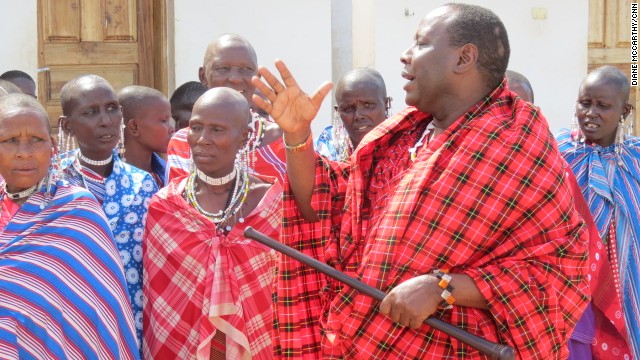 Martin Saning'o Kariongi
(right), a respected Maasai elder in northern Tanzania, has made it his life's
mission to save his people's way of life whilst helping them adapt to a changing
world.
Martin Saning'o Kariongi
(right), a respected Maasai elder in northern Tanzania, has made it his life's
mission to save his people's way of life whilst helping them adapt to a changing
world.
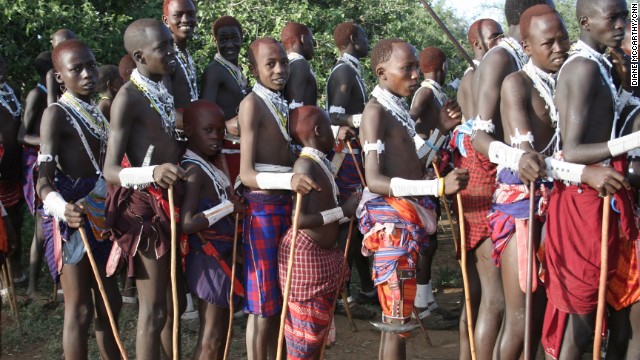 Whether
it's promoting education, encouraging gender education or setting up profitable
businesses, Kariongi is determined to promote self-sustainability within the
Maasai of northern Tanzania.
Whether
it's promoting education, encouraging gender education or setting up profitable
businesses, Kariongi is determined to promote self-sustainability within the
Maasai of northern Tanzania.
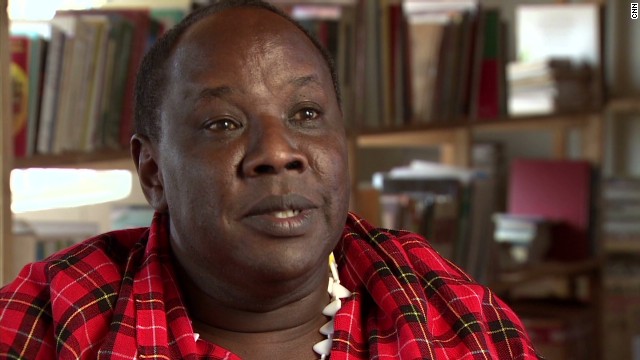 Kariongi
has started IOPA, a community-based venture company to help improve the economic
conditions of his people.
Kariongi
has started IOPA, a community-based venture company to help improve the economic
conditions of his people.
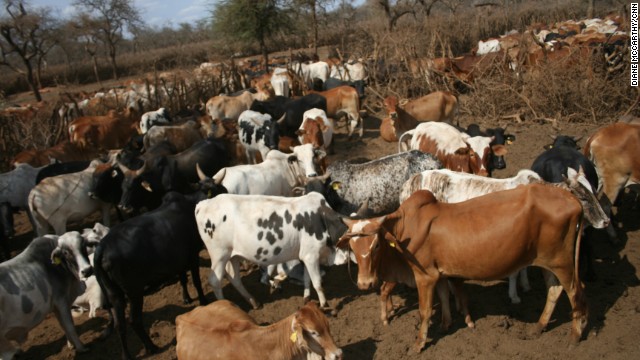 The group
has established a women-run milk processing company that's producing dairy
products, such as cheese, yoghurt, butter and ghee. "It has been going on now
for the last five years and the life of the people, the life of the families,
have changed dramatically and women are making so much money," says
Kariongi.
The group
has established a women-run milk processing company that's producing dairy
products, such as cheese, yoghurt, butter and ghee. "It has been going on now
for the last five years and the life of the people, the life of the families,
have changed dramatically and women are making so much money," says
Kariongi.
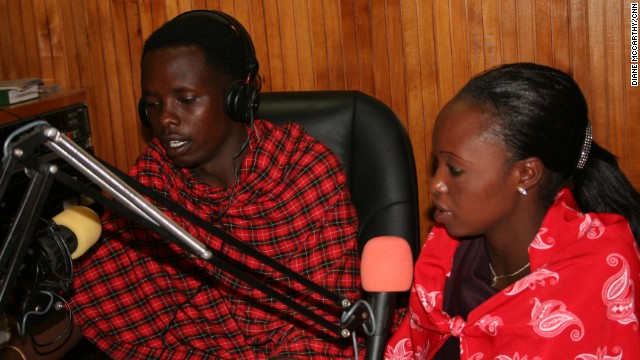 It's also
established several other companies, including a media house that is producing
radio programs specifically catering to Maasai listeners.
It's also
established several other companies, including a media house that is producing
radio programs specifically catering to Maasai listeners.
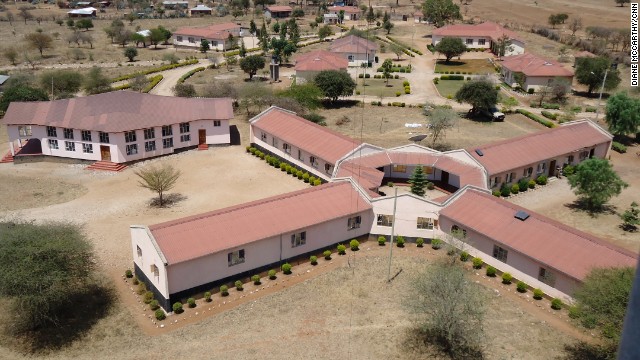 "We have
created facilities here -- the radio station, the milk processing plant, the
energy and water company, the internet, the library -- all these facilities to
bring modern life to people, so they don't have to rush to towns," says
Kariongi.
"We have
created facilities here -- the radio station, the milk processing plant, the
energy and water company, the internet, the library -- all these facilities to
bring modern life to people, so they don't have to rush to towns," says
Kariongi.
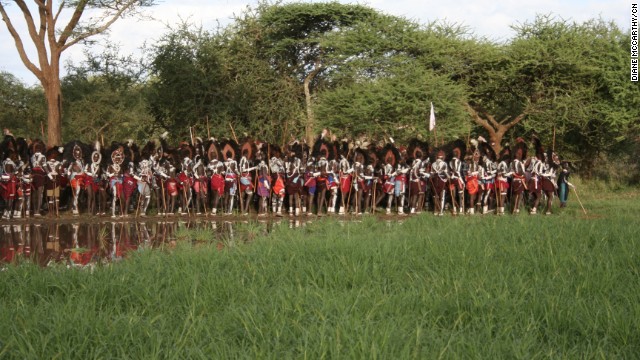 One of
the most culturally distinct tribes of Africa, the Maasai move around in bands,
grazing their cattle in the rich grassland plains of East Africa they've been
calling home for centuries.
For centuries, the lush national parks of southern
Kenya and northern Tanzania have been called home by the Maasai, one of Africa's
most culturally district tribes.
One of
the most culturally distinct tribes of Africa, the Maasai move around in bands,
grazing their cattle in the rich grassland plains of East Africa they've been
calling home for centuries.
For centuries, the lush national parks of southern
Kenya and northern Tanzania have been called home by the Maasai, one of Africa's
most culturally district tribes.